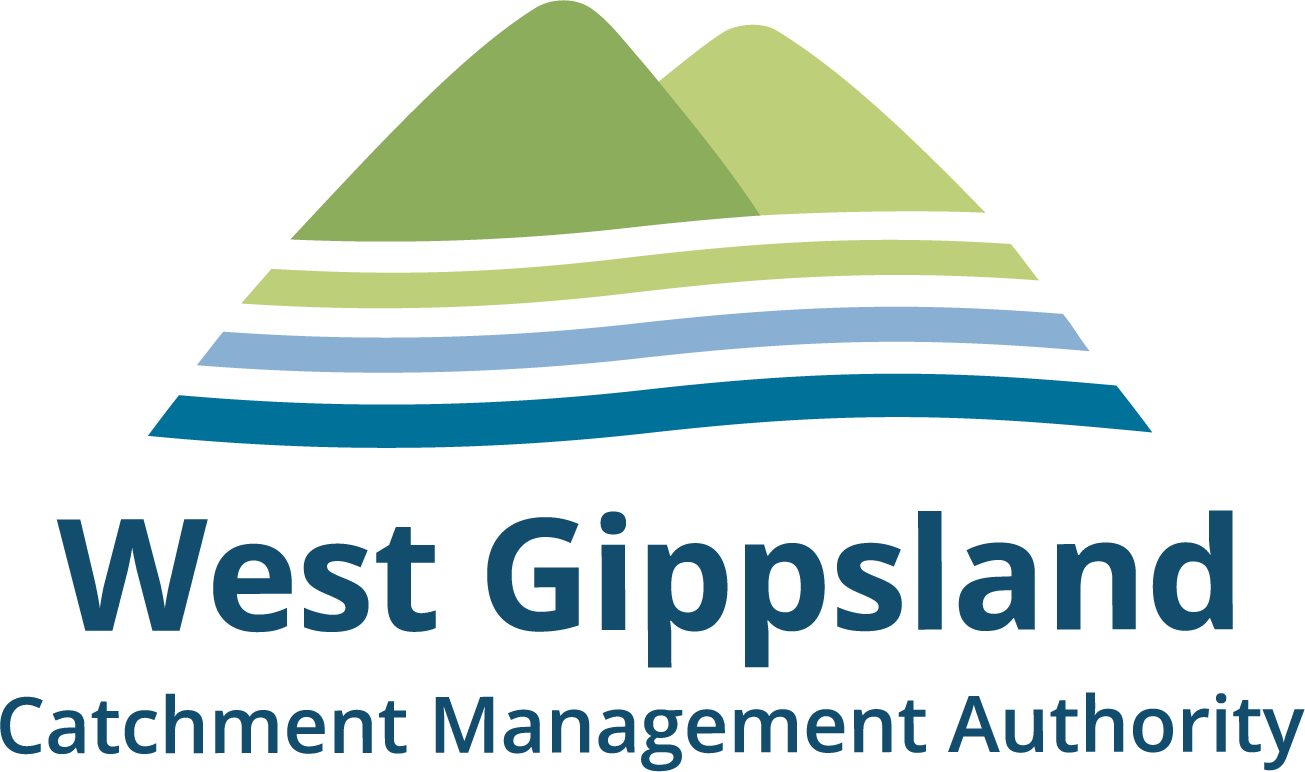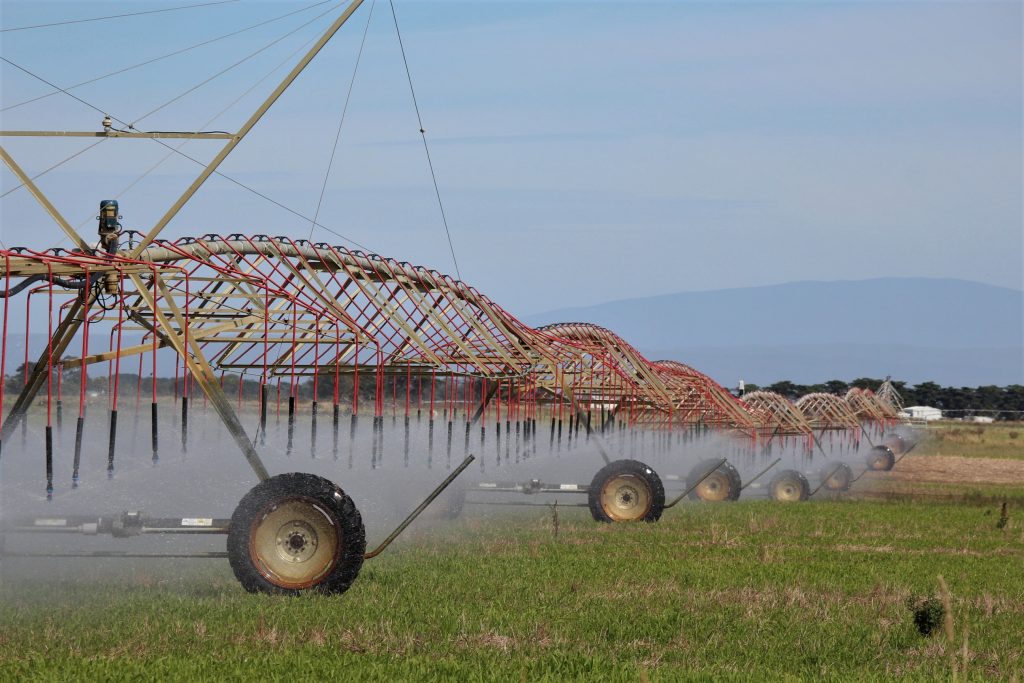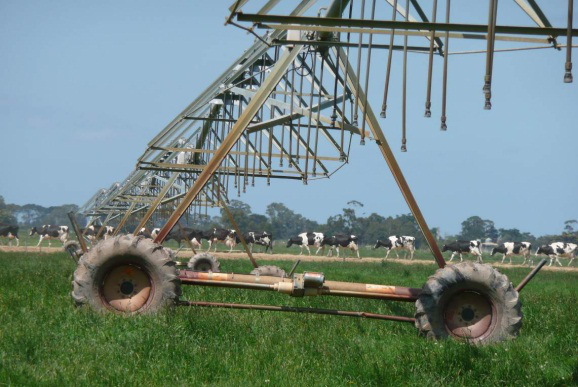Working together to improve irrigation…
The Sustainable Irrigation in West Gippsland Program seeks to achieve a highly productive and sustainable irrigation community that values and protects its natural and cultural assets.
It does this by investing in priority activities as identified in the Lake Wellington Land and Water Management Plan (LWNP). Its function is to support irrigators to be as efficient as possible while protecting the natural assets within the Gippsland Lakes catchment.
Irrigation demonstration trials
In partnership with Agriculture Victoria we are supporting four irrigators in Central Gippsland to trial innovative irrigation and nutrient management practices that boost farm productivity while improving the environment.
Watch the videos
In the videos below WGCMA Land Programs Coordinator Anthony Goode talks about Sustainable Irrigation in West Gippsland and Macalister Irrigation District dairy farmer Tom Gannon explains Irrigation Innovation.
What we do:
- Provide farm planning support, irrigation extension services and on-farm irrigation incentives to ensure Gippsland’s irrigators are operating within maximum water efficiency thereby making every drop in the consumptive pool a productive one
- Focus on managing the nutrient emissions and water quality impacts from irrigation farms on waterways and the Gippsland Lakes. This will be achieved by keeping water on-farm for productive use (eg: via irrigation reuse systems and efficient irrigation practices)
- Provide a modern irrigation extension program with a range of support mechanisms to help irrigators efficiently meet obligations, but also take advantage of the best scientific, technology and management practices available to them.
The Gippsland Lakes provide significant environmental, social, and economic value to the Gippsland region.
Export of excess nutrients has been recognised as a major contributing factor to increase the risk of algal blooms in the lakes. The Macalister Irrigation District (MID), as with practices in other, smaller irrigation areas has been recognised as a contributing source of nutrients to the Lakes.
By improving irrigation water use efficiency and adopting best management practices, farmers in the MID have, are continuing to reduce the load of nutrients being exported from the district. Improved irrigation efficiency is also helping reduce the threat of salinity and water logging whilst boosting the productivity of farms in the district.
These combined benefits are all helping to build a strong and resilient irrigation sector which in turn is boosting the regional economy.
Ongoing and long-lasting relationships with agencies and community stakeholders has helped shape the approach adopted under the Sustainable Irrigation Program and the broader Lake Wellington Land and Water Management Plan (LWNP).
Standing behind this framework is a series of core agency partnerships that are intimately involved in the day to day running of the project.
The West Gippsland Catchment Management Authority prides itself on fostering these partnerships for the benefit of all parties and for the successful delivery of services and outcomes to the community.
The core partnerships include:
- Traditional Owner Groups
- Lake Wellington Irrigator Reference Group
- Agriculture Victoria (Gippsland Irrigation Team)
- Department of Environment, Land, Water and Planning (Sustainable Irrigation Team)
- Southern Rural Water
- Lake Wellington Sustainable Irrigation Group (a regional inter-agency working group)
- Macalister Irrigation District On-Farm Modernisation Working Group (implementing the Incentives Program).
The Sustainable Irrigation Program utilises a range of interventions to further the goals of the program that include:
Irrigation Farm Planning (Incentives Program)
Irrigation farms plans ensure that proposed irrigation upgrades are professionally designed and well-coordinated with other farm systems, therefore maximising return on investment, whilst also ensuring efficient compliance with relevant environmental regulations.
Farm plans facilitate informed on-farm decisions to encourage adoption of best management practices to optimise environmental benefits of irrigation modernisation. In this way, the farm plan has become one of the frontline tools for environmental protection and enhancement. The completion of an approved plan is a pre-requisite for receiving incentive funding for on-ground works.
The Newry Irrigation Farm Planning Project 2020-21 was an exciting project for the area as part of the modernisation of the Macalister Irrigatioon District pipeline.
On-farm Irrigation Efficiency Incentives Program
The Incentives Program encourages uptake of best practice irrigation infrastructure that maximises irrigation efficiency, thereby generating water savings and productivity gains whilst minimising the offsite impacts of irrigation.
Incentives will be provided to irrigators who have a current Irrigation Farm Plan which identifies on-farm infrastructure works and measures that will improve on-farm water use efficiency.
For further details on both of these programs and to enquire if funding is currently available you can contact the WGCMA Irrigation Team on 1300 094 262.
Irrigation Extension Program
Underpinning the farm planning and on-farm incentives program is an irrigation extension program that supports irrigators to improve awareness, knowledge and skills related to irrigated agriculture.
Agriculture Victoria irrigation extension officers work in partnership with the WGCMA irrigation team to assist irrigators to make informed decisions about their farming business.
Extension activities available include one-on-one support, irrigation field days, farm walks, information sessions, and development of educational materials (e.g., media articles, brochures, field day notes). Importantly these services are free and available to irrigators Gippsland wide.
In addition to core services, the extension team is instrumental in supporting the irrigation community during volatile times, such as through drought, fires, market shocks and world events.
To speak to one of the Agriculture Victorian irrigation extension officers please call Agriculture Victoria, Maffra office on 03 5147 0800.
Irrigation Demonstrations and Pilot Programs
This activity complements all the activities delivered by the Sustainable Irrigation Team through the establishment demonstration sites and pilot programs in alignment with Lake Wellington Land and Water Management Plan priorities.
The program will aim to demonstrate and extend innovate irrigation practices that promote wise water use by working closely with the irrigation community, through the Irrigator Reference Group.
Gippsland Irrigation Development Guidelines
All new or expanding irrigation developments in Victoria must comply with requirements of the Water Act and other statutory planning processes.
By following the Gippsland Irrigation Developments Guidelines, CMA and Agriculture Victoria irrigation officers can assist potential developers to identify the relevant requirements for their business and ensure they comply with the requirements as efficiently as possible.
Community and Agency Partnerships
Background
The Lake Wellington Land and Water Management Plan (LWLWMP) recommended the establishment of an Irrigator Reference Group (IRG) to inform the implementation of the new Plan and in particular the Sustainable Irrigation Program.
The Irrigator Reference Group was formed in December 2018 to provide an irrigator perspective and advice on programs delivered through the Lake Wellington LWMP and the Sustainable Irrigation Program.
The Group helps the CMA and Agriculture Victoria to ensure that programs, projects and activities are appropriate, feasible, have the desired impact and are responsive to seasonal issues.
Roles and Responsibilities
While the Group acts in an advisory role and does not have any decision-making powers it does fulfil several key responsibilities.
These include:
- contributing relevant local and technical knowledge on irrigation related ussues in the Lake Wellington catchment
- providing input on implementation of the Lake Wellington LWMP and delivery of the Sustainable Irrigation Program
- acting as an advisory body to the Lake Wellington Sustainmable Irrigation Group (the multi-agency forum charged with implementing the Lake Wellington LWMP)
- acting as a platform for broader community feedback on irrigation issues and implementation of the Sustainable Irrigation Program.
Membership
All members are current irrigators within the Lake Wellington Catchment, and have a diversity of experience, knowledge, background and gender. The group aims to reflect the multitude of perspectives of irrigators in the Lake Wellington catchment.





